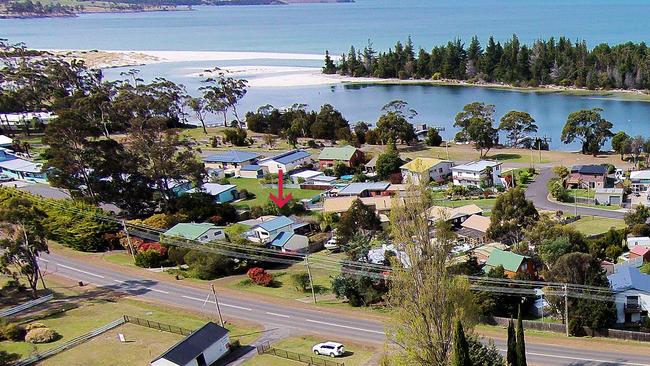East Coast residents take fight against council’s ‘wealth tax’ to Local Government Minister
Ratepayers say their council has “trampled on their democratic rights” by changing the way it calculates rates, a move they claim amounts to a “wealth tax”.
Tasmania
Don't miss out on the headlines from Tasmania. Followed categories will be added to My News.
A WAR over rates on Tasmania’s East Coast is intensifying with about 1000 angry residents demanding an inquiry to investigate the finances and administration of the Glamorgan Spring Bay Council.
In three separate petitions tabled in the House of Assembly on Thursday by Liberal Lyons member John Tucker and Labor member Jen Butler, the residents call for the council to stand down until a new election is held if it does not rescind the 2020-21 rates and revert to the previous rating method.
The petitioners called for an inquiry to be conducted within four months and to report to Local Government Minister Roger Jaensch every month with the reports also tabled in parliament.
They also want Mr Jaensch to convene a public forum on the change from the rating methodology from Average Area Rates (AAR) to Assessed Annual Value Rates (AAV).
Greg Luck, who has lived at Swansea for 15 years and organised the petitions, said residents were angry at the change in the rating system.
“We were very pleased to see 1000 ratepayers have their say about the actions of a council that has trampled on their democratic rights by ditching a system of rates that ratepayers overwhelmingly voted in to place nine years ago – after a vast amount of community input, rate comparisons and thought,” Mr Luck said.
“In the middle of a pandemic, this current council finds themselves on the edge of a ‘financial precipice’ and decides that changing the rate system will bail them out of their situation.
“So with no community input or consultation they moved us to AAV where the rates you pay are based on the assessed annual value of your property – a wealth tax.”

Mr Luck said his rates had gone up 60 per cent and he knew of one resident whose rates bill had risen 98 per cent.
Mayor Robert Young said the rating system would not be changing and AAV was used by all but two Tasmanian councils.
He said he had also been told that some people mistakenly signed the petition believing it was a Covid check-in form.
“Over 1000 ratepayers got a rate reduction and the average did not get a huge increase,” Mr Young said.
“Our average rates are below the average rates in adjoining municipalities.”
Mr Jaensch said he met with concerned residents and ratepayers in August and undertook to discuss issues further with the Director of Local Government.
“The Director of Local Government has since met with the general manager and the council’s leadership team, and to promote community confidence in the council has instructed them to provide ongoing six-monthly reports to the Director and myself, which will be made publically available.
“The government will table a response to the petitions in parliament as is normal process.”
Mr Jaensch said councils were accountable to their residents and ratepayers for the decisions they made, including the setting of rates.
More Coverage
Originally published as East Coast residents take fight against council’s ‘wealth tax’ to Local Government Minister





